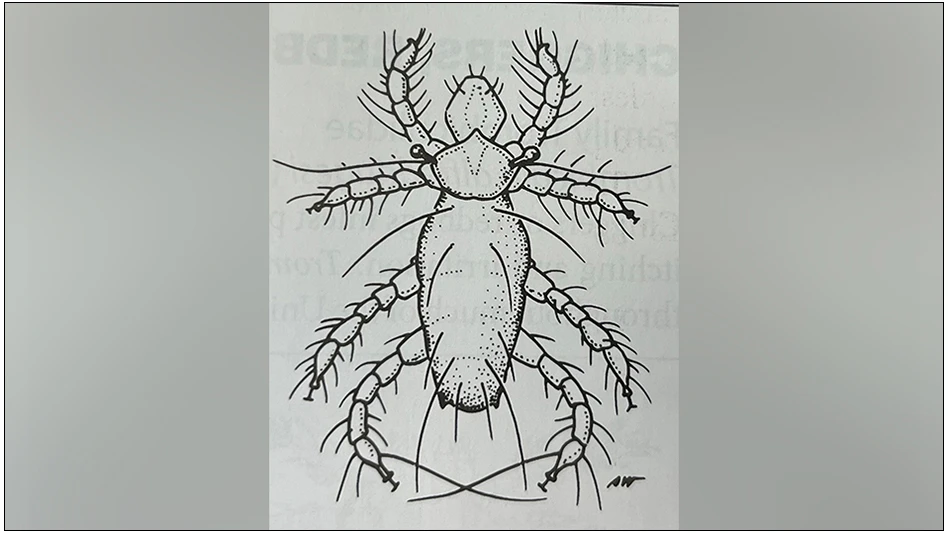Few scorpion species inject sufficient venom to be of concern to humans. The only potentially lethal United States scorpion is Centruroides exilicauda or sculpturatus. This scorpion is found primarily in Arizona. It is most active May through August and diapausing in winter. As with Black Widow spiders, most deaths and serious reactions from Centruroides stings are in small children, the elderly and hypertensives.
Any sting typically produces a burning, minimal swelling, redness, vesicles, numbness, tingling and, uncommonly, weakness or numbness of the affected extremity. Centruroides stings are usually acutely painful, with a hypersensitive zone soon developing around the site. The injured area may be sensitive to touch, pressure, heat and cold. Salivation, diaphoresis (sweating), paresthesias (itching), dysphagia (difficulty swallowing), gastric distension, hyperactivity, nystagmus (rapid eyeball movement), visual loss, incontinence, exaggerated reflexes, abdominal pain, hypertension (more common), hypotension (less common), pulmonary edema, coma and muscle paralysis (including respiratory paralysis) can ensue; especially in children. Most non-lethal symptoms last less than four hours.
Treatment includes evaluation and application of cold to the sting site. Clean the site and apply a sterile, or at least clean, dressing. For severe pain, splint or immobilize the affected extremity. Oral, non-narcotic analgesics may be useful. If serious symptoms develop, immediate evacuation is indicated. If possible, bring the scorpion along on the evacuation, but avoid direct handling.
WANT MORE?
Enter your email to receive our newsletters.

Explore the April 2006 Issue
Check out more from this issue and find your next story to read.
Latest from Pest Control Technology
- Target Specialty Products, MGK Partner for Mosquito Webinar
- Cockroach Control and Asthma
- FORSHAW Announces Julie Fogg as Core Account Manager in Georgia, Tennessee
- Envu Introduces Two New Innovations to its Pest Management Portfolio
- Gov. Brian Kemp Proclaimed April as Pest Control Month
- Los Angeles Ranks No. 1 on Terminix's Annual List of Top Mosquito Cities
- Kwik Kill Pest Control's Neerland on PWIPM Involvement, Second-Generation PCO
- NPMA Announces Unlimited Job Postings for Members







